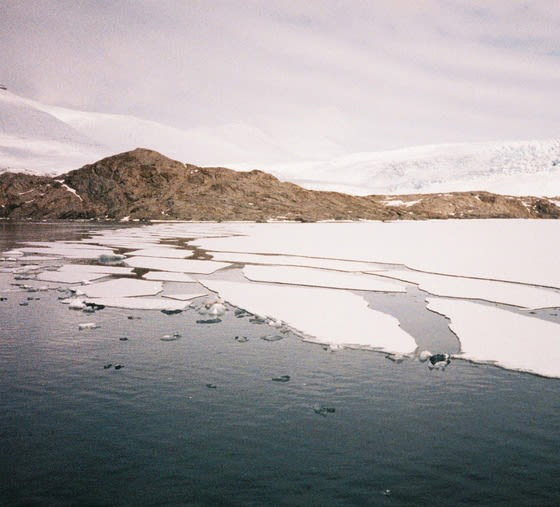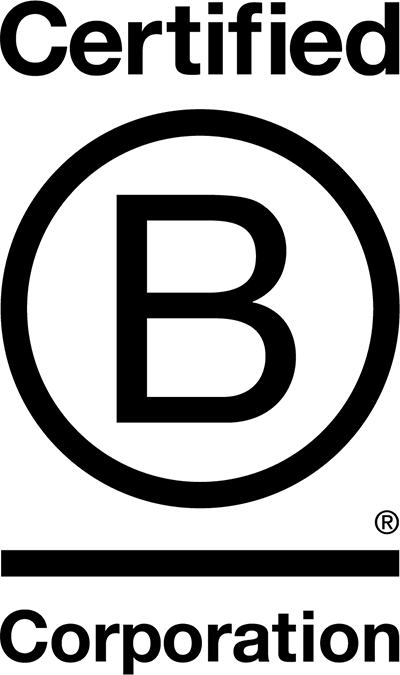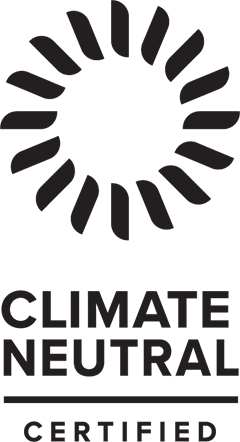Producing goods destined for the dump just isn’t working anymore.
For too long - our markets have been designed in a way that promotes wasteful consumer practices. We’ve seen what effects these short-term growth models have had on our communities and environments, and it’s hard to keep up with the facts and figures about what gets wasted at each level of the production chain.
Nearly 90% of the biomass on the planet is directly or indirectly covered by systems that intend to feed us, clothe us and house us. The most recent UN report on biodiversity tells us that over 1 million species face extinction because of human-caused habitat loss. We have 10 years to deal with catastrophic climate change. The list goes on…
Identifying how all of these issues will affect the future means that sometimes we have to look to the past for guidance on how to redesign our societies. This is the silver lining of human error - a glance back at history’s major tipping points provides us with blueprints to design the big changes that we need for a more livable future. The reality isn’t some tug-of-war between our ability to be optimistic or pessimistic. The reality is that things can change pretty quickly here on planet earth. We have the capacity to turn it all around. We have before, and we will again.
"The reality is that things can change pretty quickly here on planet earth. We have the capacity to turn it all around. We have before, and we will again."
We’re not as bad as we think we are
Dealing with human inadequacies is much like having personal pangs of low self esteem, just on a planetary scale. Sometimes, the way to deal with those moments of self-doubt is to take a look in the mirror, give our face a little splash and say an affirmation. We aren’t all bad. We are capable of greatness.
A couple of things come to mind right off the bat.
We applied the magic of mathematics and astronomy to an understanding of gravity and telecommunications. Think of the far-reaching implications of Edison’s light bulb, or the printing press, the steam engine or human flight. Of course, all systems that are designed by humans are vulnerable to human oversight but it’s vital that we give a nod to our collective ingenuity so we can place our bets on a hopeful future. And, oh, how far we’ve come. In just a century we’ve gone from having to rely on global conglomerates for much of our daily news information to being able to call the people we love and ask them what the temperature is in their backyard - no matter where they are in the world.
On July 20th 1969, Buzz Aldrin, Neil Armstrong and Michael Collins boarded Apollo 11 in Florida, they orbited earth twice, then hit 40000 km/hr speeds on a burn to the Moon. Before actually landing, they pulled off moves with names like: the lunar orbit insertion maneuver, retrograde firing while transposition and jettisoning their lunar module adapters into a heliocentric orbit, all while managing lunar-gravity perturbations and docking procedures in the middle of outer-flipping-space. That brief moment of collective effort showed all humanity that if we work hard enough and apply our inventiveness to any problem, we can leap from our own home to a rocky, lunar surface somewhere way out there.
Designing better systems with a sense of respect, a sense of humour, and sense of reality.
Better choices do exist. They exist at every level. From the grassroots communities springing into action to address inequality, to entrepreneurs that develop economic and pricing models that make room for new value systems. From renewable global energy grids down to small-scale turbine and solar projects, we see that not only is it possible to address complex societal challenges, we can use design thinking and apply to any scale. Building products that last longer out of materials that already exist is one way that companies are doing business, and thriving in this new realm. No more water-heavy textile manufacturing or toxic chemical build-up in our waterways as a result of new tech products - the largest industries on the planet are changing how they deliver their products, with record-breaking annual investment in renewable technologies, and even a rise in self-imposed regulation by organizations on their own luxury markets.
On the consumer end, surveys are finding that quick-turnaround commodities are becoming a harder sell to the middle class and affluent buyers.
"The truth is; there is no better motivation to make change than there is today. At all levels, necessity breeds invention."
Fortunately for us, we have all the tools we could ever dream of, and some that we haven’t even begun to imagine - at our fingertips.
Julia Kidder
Inventive solutions to plastics waste invented by young people like Boyan Slat, or 16 year old autistic climate striker Greta Thunberg - who spoke to UN parliament with this to say;
“You are not mature enough to tell it like is. Even that burden you leave to us children. But I don’t care about being popular. I care about climate justice and the living planet.”
All approaches with the intent of making the planet more livable are welcomed now. Whether that means making better products out of low-impact materials, curating and matchmaking our economic relationships so that small businesses can also find their place in a world that has been consistently dominated by monopolies.
"And, much like getting men to the moon, moments of collective effort across different fields are shaping the future in ways we haven’t yet understood are possible."
These are signifiers of true turning points in human behavior. The emerging business model has compassion at its core. The emerging consumer is discerning enough to ask the questions that matter. And, much like getting men to the moon, moments of collective effort across different fields are shaping the future in ways we haven’t yet understood are possible.
So where does that leave us?
The rate at which we change our behaviour to adapt to the world around us is an amazing hallmark of the human species. Self-flagellation and furrowing brows isn’t going to get us anywhere, and though it’s all so serious, and feels so dire - if we don’t lighten up and appreciate what we’ve got then we won’t have a fighting chance. And yes, we’ve made some serious mistakes. But we’ve built these shoddy systems quickly and now it’s just time to build new and better ones, even faster.
Julia Kidder
Human ingenuity can solve challenges caused by human ignorance and our capacity to turn things around quickly is a heavy opponent to the right hook of nihilism. Now, we stand at a precipice with the opportunity to face our species greatest fork in the road. Stay the course, or turn it all around.

































